
One day about 35 years ago, I stood in line to enter one of America's most notorious state prisons: San Quentin in California.
From the front gate, the prison looked like a fortress perched high above San Francisco Bay. Multistory cell blocks were guarded by razor wire and surveillance towers. The prison's Death Row housed dozens of men condemned to die.
Today the prison has been refashioned as a criminal rehabilitation facility, and there's a moratorium on the death penalty in California.
Back then, San Quentin housed some of America's worst criminal offenders. It was a fearsome place. Waiting to go inside, all I could think was, Why on earth am I doing this?
I was a single woman in my late thirties. I volunteered with an addiction recovery organization that sent people into hospitals and prisons to share recovery stories and offer a message of hope.
Seven years sober, I had volunteered to join my organization's four-person delegation to San Quentin because I lived nearby in Marin County. Now I wondered if I had other reasons.
We showed IDs, passed through security and gathered in an assembly area. I took a deep breath. Memories from long ago crowded into my mind. I felt a rising sense of dread.
We listened while a guard gave instructions. "Do not engage with inmates unless explicitly instructed. Keep yourself focused on what you're here to do, and do not attempt to enter unauthorized areas. Your meeting room is on the other side of the yard over there."
The guard pointed across a large outdoor exercise yard toward a far-away building. Another guard escorted us out, and we began walking across the yard. I tried not to show my mounting sense of misgiving. We entered a large classroom with about 60 desks in rows. Every desk was occupied by an inmate.
They wore denim uniforms and had tattoos visible almost everywhere the denim didn't cover. Many had shaved heads. They stared at us with hardened expressions.
この記事は Guideposts の Oct/Nov 2024 版に掲載されています。
7 日間の Magzter GOLD 無料トライアルを開始して、何千もの厳選されたプレミアム ストーリー、9,000 以上の雑誌や新聞にアクセスしてください。
すでに購読者です ? サインイン
この記事は Guideposts の Oct/Nov 2024 版に掲載されています。
7 日間の Magzter GOLD 無料トライアルを開始して、何千もの厳選されたプレミアム ストーリー、9,000 以上の雑誌や新聞にアクセスしてください。
すでに購読者です? サインイン
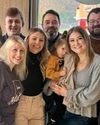
What prayer can do
POWER IN OUR DAY-TO-DAY LIVES
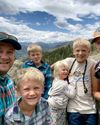
Rejoice in All Things
My husband and I had an annual tradition of celebrating the high points of the year. This time, he wanted to try something different
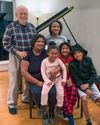
Special Delivery
A month after my wife died and my life felt so empty, the only thing I had to look forward to was Amazon
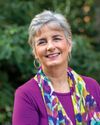
A Prayer for Cullen
Even in a family crisis, I had trouble quieting my mind enough to listen for God

Blackie & Rosebud
What would happen to my friend's cats now that she was gone?
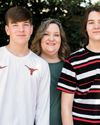
The Kids Are Alright
My twin boys and I had always been close. I thought they needed me. Now I wasn't so sure

Kindred Spirits
I thought the nose ring gave it away—she was just another teenager. I couldn't imagine how she could help me
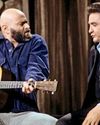
A Boy Named Sue
In 1969, Johnny Cash and his wife, June, threw a party at their house in Hendersonville, Tennessee, a “guitar pull,” where guests passed around a guitar and tried out new songs.
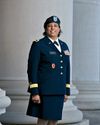
Active Duty
I'd tried everything for my knee - physical therapy, gel injections, a cumbersome brace. Everything except prayer
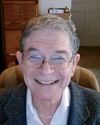
Living an Abundant Life
A conversation with spirituality and health researcher Harold G. Koenig, M.D., on what makes people truly happy
